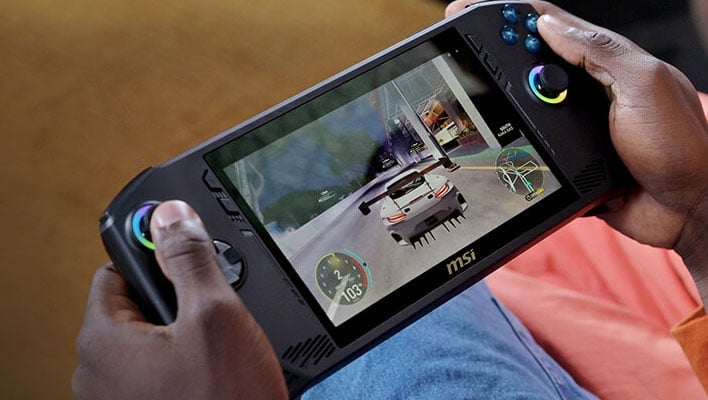
MSI’s Claw gaming handheld is unique in one specific way that makes it really interesting to a particular class of gamer. That particular class is the hardware geek, and the specific interesting detail is that it is based on an Intel Core Ultra processor rather than one of the AMD Phoenix APUs upon which almost all other gaming handhelds are based.

That’s exactly what Intel and MSI have been working on, and according to the manufacturer, the MSI Claw’s latest updates radically improve gaming performance. We haven’t tested it ourselves yet, but according to MSI these gains range from as little as 5% in cowboy action game Red Dead Redemption 2 all the way up to a whopping 150% gain in zombie survival simulator 7 Days to Die.

This makes its AI performance considerably worse and renders it unable to use the advanced version of XeSS only available on discrete Arc GPUs, but it has absolutely no effect on the overall gaming performance of the GPU itself, which we found to be quite good and competitive with the ASUS ROG Ally in our review of the Meteor Lake Core Ultra 7 165H aboard the MSI Prestige 16 AI Evo. So saying, there’s not much reason the Claw should lag as far behind its competitors as it originally did, and we’re glad to see updates unlocking its true potential.
Of course, there’s still the matter that the Claw is considerably more expensive than its rivals, including the ASUS ROG Ally and the aforementioned Steam Deck OLED. There’s still a lot to like here, though, such as its unique Thunderbolt 4 support, the fingerprint sensor, and the device’s support for Wi-Fi 7. Hopefully, with future updates, the MSI Claw’s value proposition continues to build.